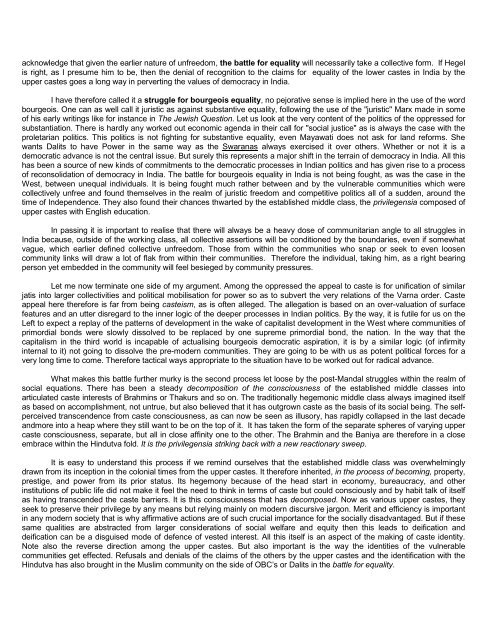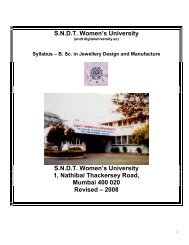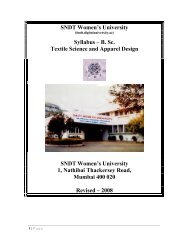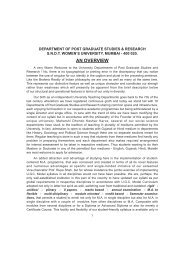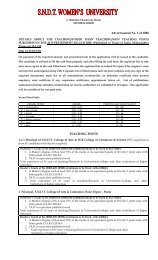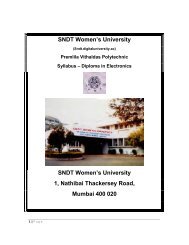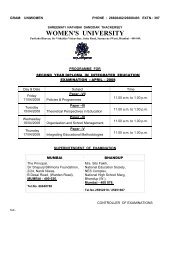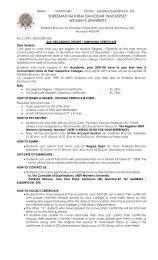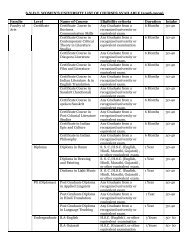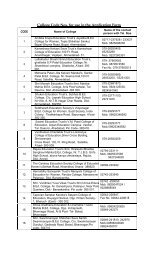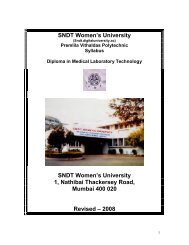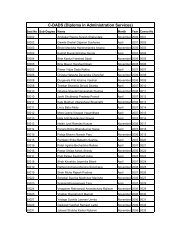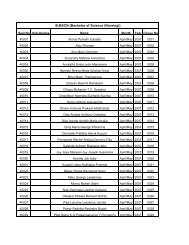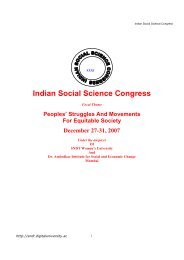XXXI Abstracts Part 1 page 1-189
XXXI Abstracts Part 1 page 1-189
XXXI Abstracts Part 1 page 1-189
You also want an ePaper? Increase the reach of your titles
YUMPU automatically turns print PDFs into web optimized ePapers that Google loves.
acknowledge that given the earlier nature of unfreedom, the battle for equality will necessarily take a collective form. If Hegel<br />
is right, as I presume him to be, then the denial of recognition to the claims for equality of the lower castes in India by the<br />
upper castes goes a long way in perverting the values of democracy in India.<br />
I have therefore called it a struggle for bourgeois equality, no pejorative sense is implied here in the use of the word<br />
bourgeois. One can as well call it juristic as against substantive equality, following the use of the "juristic" Marx made in some<br />
of his early writings like for instance in The Jewish Question. Let us look at the very content of the politics of the oppressed for<br />
substantiation. There is hardly any worked out economic agenda in their call for "social justice" as is always the case with the<br />
proletarian politics. This politics is not fighting for substantive equality, even Mayawati does not ask for land reforms. She<br />
wants Dalits to have Power in the same way as the Swaranas always exercised it over others. Whether or not it is a<br />
democratic advance is not the central issue. But surely this represents a major shift in the terrain of democracy in India. All this<br />
has been a source of new kinds of commitments to the democratic processes in Indian politics and has given rise to a process<br />
of reconsolidation of democracy in India. The battle for bourgeois equality in India is not being fought, as was the case in the<br />
West, between unequal individuals. It is being fought much rather between and by the vulnerable communities which were<br />
collectively unfree and found themselves in the realm of juristic freedom and competitive politics all of a sudden, around the<br />
time of Independence. They also found their chances thwarted by the established middle class, the privilegensia composed of<br />
upper castes with English education.<br />
In passing it is important to realise that there will always be a heavy dose of communitarian angle to all struggles in<br />
India because, outside of the working class, all collective assertions will be conditioned by the boundaries, even if somewhat<br />
vague, which earlier defined collective unfreedom. Those from within the communities who snap or seek to even loosen<br />
community links will draw a lot of flak from within their communities. Therefore the individual, taking him, as a right bearing<br />
person yet embedded in the community will feel besieged by community pressures.<br />
Let me now terminate one side of my argument. Among the oppressed the appeal to caste is for unification of similar<br />
jatis into larger collectivities and political mobilisation for power so as to subvert the very relations of the Varna order. Caste<br />
appeal here therefore is far from being casteism, as is often alleged. The allegation is based on an over-valuation of surface<br />
features and an utter disregard to the inner logic of the deeper processes in Indian politics. By the way, it is futile for us on the<br />
Left to expect a replay of the patterns of development in the wake of capitalist development in the West where communities of<br />
primordial bonds were slowly dissolved to be replaced by one supreme primordial bond, the nation. In the way that the<br />
capitalism in the third world is incapable of actualising bourgeois democratic aspiration, it is by a similar logic (of infirmity<br />
internal to it) not going to dissolve the pre-modern communities. They are going to be with us as potent political forces for a<br />
very long time to come. Therefore tactical ways appropriate to the situation have to be worked out for radical advance.<br />
What makes this battle further murky is the second process let loose by the post-Mandal struggles within the realm of<br />
social equations. There has been a steady decomposition of the consciousness of the established middle classes into<br />
articulated caste interests of Brahmins or Thakurs and so on. The traditionally hegemonic middle class always imagined itself<br />
as based on accomplishment, not untrue, but also believed that it has outgrown caste as the basis of its social being. The selfperceived<br />
transcendence from caste consciousness, as can now be seen as illusory, has rapidly collapsed in the last decade<br />
andmore into a heap where they still want to be on the top of it. It has taken the form of the separate spheres of varying upper<br />
caste consciousness, separate, but all in close affinity one to the other. The Brahmin and the Baniya are therefore in a close<br />
embrace within the Hindutva fold. It is the privilegensia striking back with a new reactionary sweep.<br />
It is easy to understand this process if we remind ourselves that the established middle class was overwhelmingly<br />
drawn from its inception in the colonial times from the upper castes. It therefore inherited, in the process of becoming, property,<br />
prestige, and power from its prior status. Its hegemony because of the head start in economy, bureaucracy, and other<br />
institutions of public life did not make it feel the need to think in terms of caste but could consciously and by habit talk of itself<br />
as having transcended the caste barriers. It is this consciousness that has decomposed. Now as various upper castes, they<br />
seek to preserve their privilege by any means but relying mainly on modern discursive jargon. Merit and efficiency is important<br />
in any modern society that is why affirmative actions are of such crucial importance for the socially disadvantaged. But if these<br />
same qualities are abstracted from larger considerations of social welfare and equity then this leads to deification and<br />
deification can be a disguised mode of defence of vested interest. All this itself is an aspect of the making of caste identity.<br />
Note also the reverse direction among the upper castes. But also important is the way the identities of the vulnerable<br />
communities get effected. Refusals and denials of the claims of the others by the upper castes and the identification with the<br />
Hindutva has also brought in the Muslim community on the side of OBC’s or Dalits in the battle for equality.


